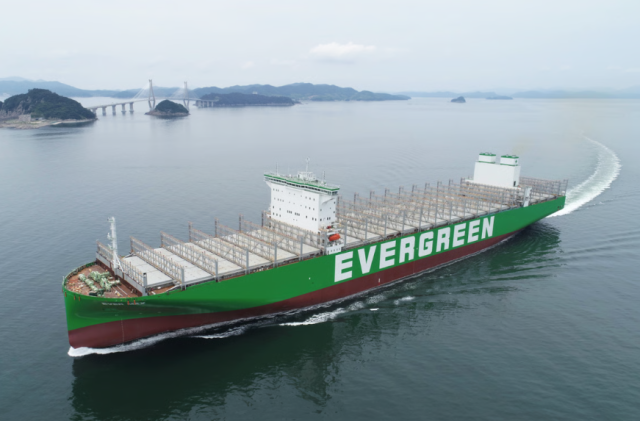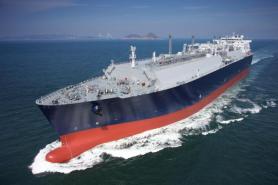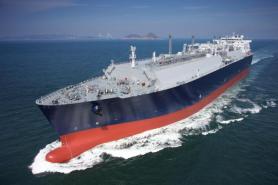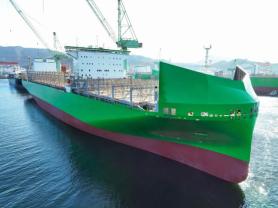
SEOUL, September 25 (AJP) - Samsung Heavy Industries said on Thursday that it had successfully tested an artificial intelligence–based autonomous navigation system on a trans-Pacific voyage, a milestone in the shipping industry’s push toward automation and efficiency.
The system, known as Samsung Autonomous Ship (SAS), was installed on a 15,000-TEU container vessel operated by Evergreen Marine of Taiwan. The ship departed Oakland, Calif., on Aug. 25 and arrived in Kaohsiung, Taiwan, on Sept. 6, after traveling thousands of miles across the Pacific Ocean.
Over the course of the voyage, the SAS platform analyzed weather patterns and sea conditions every three hours, issuing 104 navigational guidance recommendations and taking automatic control of the vessel 224 times, the company said.
The system optimized speed and routing to conserve fuel while ensuring the ship arrived on schedule.
Shipping accounts for about 90 percent of global trade, but the industry has been slow to adopt automation compared with aviation or automotive sectors. Companies and regulators have wrestled with safety concerns, liability questions and the sheer complexity of guiding massive vessels through unpredictable seas.
Japan, Norway and China have all carried out trials of autonomous or remotely operated ships in recent years, with the technology often framed as a way to reduce fuel consumption, cut carbon emissions and relieve pressure on crews.
Samsung Heavy Industries, one of the world’s largest shipbuilders, has been developing autonomous navigation systems for more than a decade. Its latest test reflects a shift from collision-avoidance support toward what the company calls “economic navigation” — maintaining steady speeds, optimizing fuel efficiency and improving punctuality.
“SAS has evolved from a collision-avoidance support system to one that maintains economic speed and punctuality, contributing as an eco-friendly solution to the global shipping industry,” said Lee Dong-yeon, head of Samsung’s Shipbuilding and Marine Research Institute.
Lee said it would continue working with Evergreen to refine the technology, with a focus on route optimization and further fuel savings.
* This article, published by Aju Business Daily, was translated by AI and edited by AJP.
Copyright ⓒ Aju Press All rights reserved.




